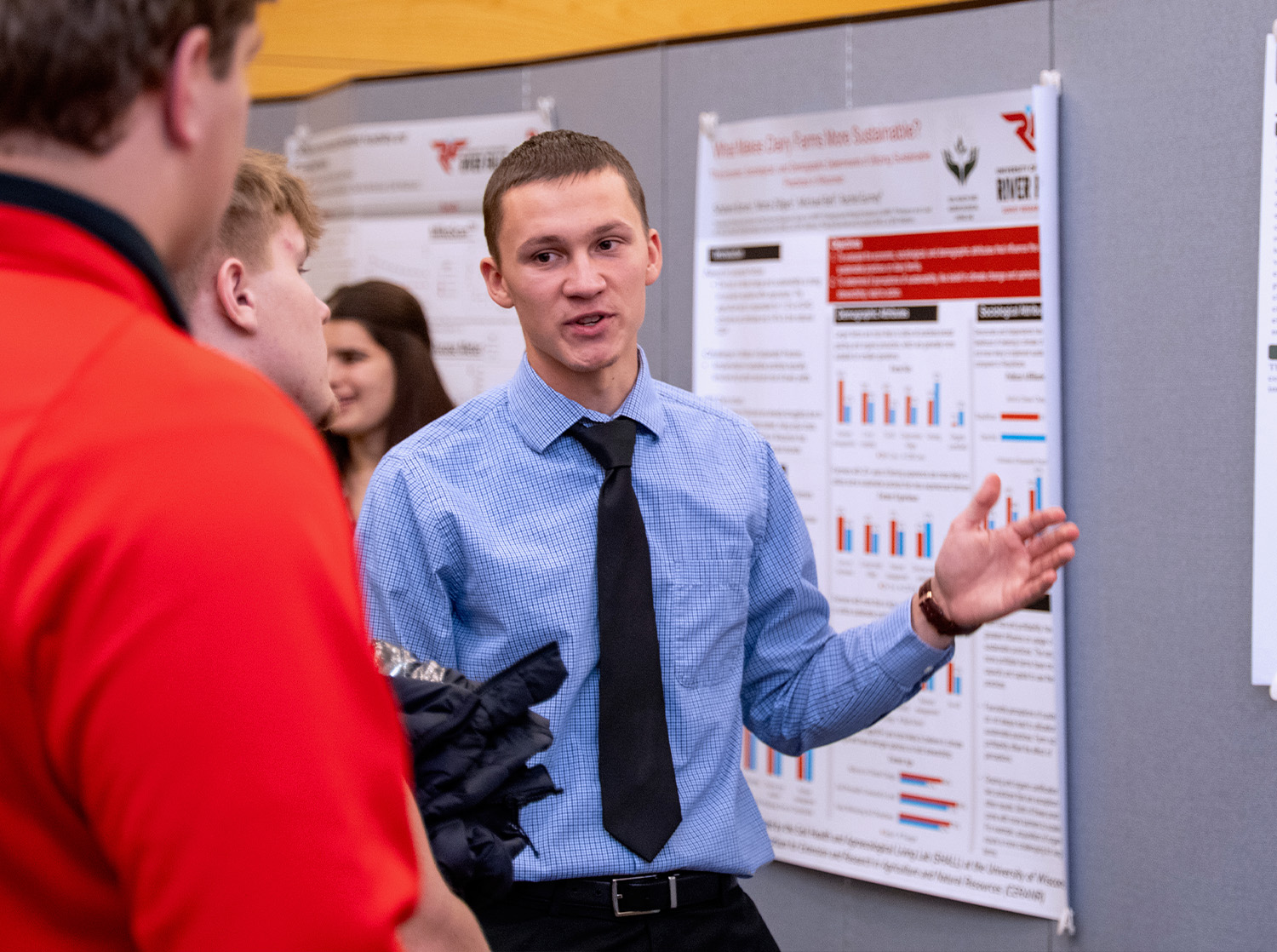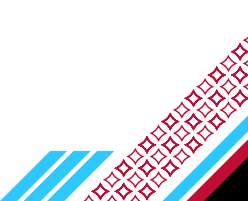Undergraduate Stipends and Expenses (USE) Grant
The Undergraduate Stipends and Expenses Grant (USE Grant) supports research expenses like supplies, equipment, software and travel. It also compensates students for their time. Dissemination activities, such as conferences, are funded through Falcon Travel Grants. The USE Grant is specifically for costs directly related to conducting research.
USE Grant rounds open the first day of each semester and close six weeks later. Please see the URSCA Calendar for more details.

Details
USE Grants are available to undergraduates in all disciplines for individual or collaborative projects. Proposals must be student-authored with faculty guidance throughout. Faculty mentors oversee the research process and receive a mentorship award upon project completion. Applications are accepted for fall, J-term, spring and summer projects.
Funding
Individual Undergraduate Research Projects
Undergraduate researchers conducting an individual project are eligible to apply for a combined total maximum of up to $2,000 in S&E (supplies and expenses) and/or financial aid funding to support your research project.
Your total request for funding in your grant proposal cannot exceed $2,000. An itemized budget and a timeline are required elements of the USE Grant application. To receive strongest consideration, your itemized budget should be specific, detailed, and justify all S&E costs; your timeline should also be detailed, and justify the time you intend to spend on this project.
Individual Undergraduate Research Projects: Determining Funding
How do you determine whether to request S&E or financial aid, and in what amounts? Your mentor will provide you with guidance as to what will be most appropriate for your project.
- Research Supplies and Expenses
- For projects requesting S&E support: supplies and expenses are payable either to the mentor's department for the purchase of URSCA supplies or to cover departmental outlays for URSCA expenses, or in rare cases directly to the undergraduate responsible for purchasing (we do not recommend students purchase items - please connect with mentor to discuss purchasing supplies for your project). Where possible, mentor departments should complete all purchasing. In all cases, payments are receipt-based and require timely submission of receipts and necessary documentation via the state-mandated e-reimbursement system.
- Funds may be used to purchase undergraduate research supplies including, but not limited to, small equipment, books, software, disposable lab supplies, instructional materials, printing, and travel to conduct research. Students may also request funding for a presentation poster.
- Financial Aid Award
- Individual researchers may request research support for their time while conducting the research project in the form of a financial aid award. If financial aid is being requested, the request must be in increments of $100. Students who are conducting their USE Grant project for course credit are not eligible to receive a financial aid payment for their time on the project (the course credit is their reward for participation).
- Awards in the Individual USE Grant category are capped at $2,000.
Collaborative Undergraduate Research Projects
Researchers in a collaborative team project are eligible to apply for a combined total maximum of up to $3,500 in S&E (supplies and expenses) and/or financial aid funding to support your research project.
Your total request for funding in your USE grant proposal cannot exceed $3,500. To receive strongest consideration, your itemized budget should be specific, detailed, and justify all S&E costs; your timeline should also be detailed, and justify the time you and your teammates intend to spend on this project.
Collaborative Undergraduate Research Projects: Determining Funding
How do you determine whether to request S&E or financial aid, and in what amounts? Your mentor will provide you with guidance as to what will be most appropriate for your project. There are no limits on the number of undergraduates that can participate on a collaborative research project, however, awards in the collaborative undergraduate research category are capped at $3,500.
- Research Supplies and Expenses
- For projects requesting S&E support: supplies and expenses are payable either to the mentor's department for the purchase of URSCA supplies or to cover departmental outlays for URSCA expenses, or in rare cases directly to the undergraduate responsible for purchasing. Where possible, mentor departments should complete all purchasing. In all cases, payments are receipt-based and require timely submission of receipts and necessary documentation via the state-mandated e-reimbursement system.
- Funds may be used to purchase undergraduate research supplies including, but not limited to, small equipment, books, software, disposable lab supplies, instructional materials, printing and travel to conduct research. Students may also request funding for a presentation poster.
- Financial Aid Award
- Researchers in a collaborative team project may also request research support for their time while conducting the research project in the form of financial aid awards. If financial aid is being requested, the request must be in increments of $100. Students who are conducting their USE Grant project for course credit are not eligible to receive a financial aid payment for their time on the project (the course credit is their reward for participation).
- Awards in the Collaborative USE Grant category are capped at $3,500.
Mentor Funds
- Faculty/staff mentors who direct successful individual or collaborative USE Grants receive funds for their own research or professional development.
- Mentor awards will be paid on a 1-3 ratio based on the undergraduate proposal award.
- Mentors will receive mentor funds for a maximum of two student projects at a time. They may mentor more than two projects, but will only be funded for two.
- Faculty/staff mentors have one year from award letter notification to use funds. After one year has expired, funds will be reverted back to the funding pool.
- Faculty/staff mentors are not eligible for mentor funds if a student is receiving credit from a URSCA project in a course.
- Please visit the URSCA Forms page for details on the process to receive mentor funds.
Multiple Funding Sources
Students cannot simultaneously receive funding through multiple programs or credit for the same budget items and/or the same phase of a previously-funded or for-credit research project (i.e. No “double-dipping” or “double-counting”). Students may apply for a USE Grant if they are requesting funding for a new phase of a previously funded project, or if they wish to expand and further develop a previously funded project, or a project for which they have previously received course credit. In such a case, the student’s research question, methodology, timeline, and budget should reflect the way(s) in which this project is new or different from what they did before. Students applying for funding through the Undergraduate Research, Scholarly and Creative Activity Office are required to disclose funding (and applications) from all other sources, including McNair, NSF, etc.
Accessing Award Funds
Award fund distribution is not automatic. To access your funds, you will need to send the completed Request For Transfer with the supporting documents to ursca@uwrf.edu.
Additional Information
Additional Terms and Conditions
- Application to the USE Grant does not guarantee funding.
- Undergraduates may apply for up to three USE Grants per year. If funding is limited, priority will be to undergraduates who have not already been awarded a USE Grant this fiscal year.
- Undergraduates receiving a USE Grant must be degree-seeking UWRF undergraduates.
- Acceptance of a USE Grant award is an agreement on the part of all undergraduate recipients to present findings on-campus at the UWRF Fall Gala within one year of the award. Graduating seniors may present at the UW System Symposium for Undergraduate Research and Creative Activity as an alternative.
- Brief online project updates are required at the end of each term from undergraduate award recipients and their mentors.
- All purchasing must adhere to university policy, with equipment and non-disposable materials becoming property of the mentor’s department on completion of the project.
- Per campus guidelines for differential tuition funds, grant monies cannot be used to purchase food, beverages, or incentives for human research subjects or participants.
- Projects and all requests for payment must be completed within one year of the award, or prior to graduation, whichever comes first.
Animal and Human Subjects
If you are a student researcher or mentor who plans on using animals or humans as test subjects, your research will need to file an IACUC (animal) or IRB (human), please check with the Office of Grants and Research. Guidelines on these processes can be found on their website, or follow the links below.
Timeline
- Applications are submitted
- Applications are reviewed by URSCA Council using a blind review process
- Reward letters are sent out via email after six to eight weeks of application deadline
- Students must accept or decline grant
- If accepted, students and mentors may begin their research
- Students and mentors conclude their research
- Students present their project at an URSCA event of their choice
Reimbursements
Award fund distribution is not automatic. To access your funds, you will need to send the completed Request For Transfer with the supporting documents to ursca@uwrf.edu.

